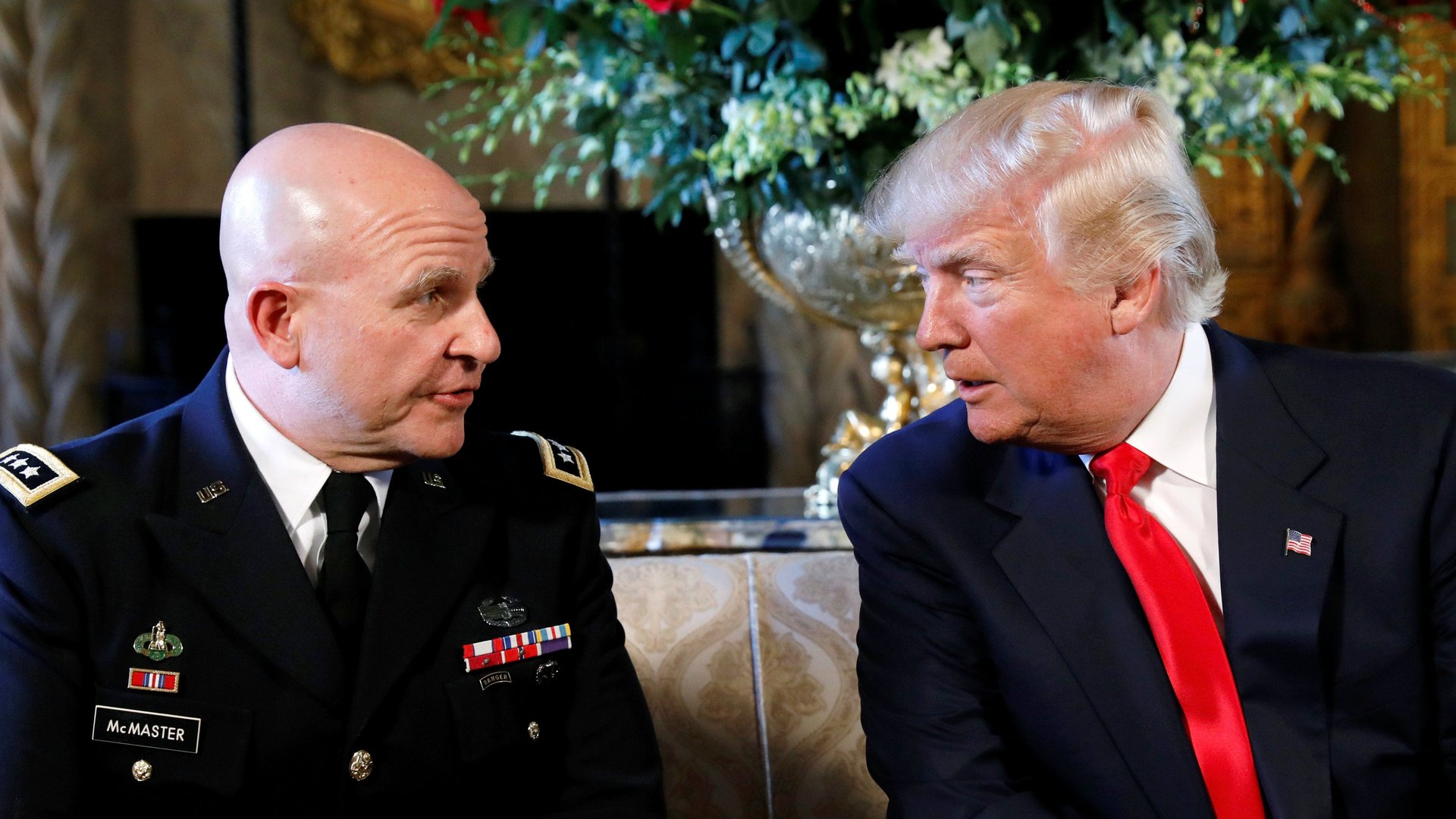The four fallacies of warfare, according to Donald Trump’s new national security advisor
Lieutenant general H.R. McMaster speaks in complete sentences, peppering his conversation with quotes from ancient Greek and German philosopher-soldiers. His reputation for erudition and intelligence was a big reason why much of the world gave a collective sigh of relief this weekend when president Donald Trump named him as the US national security advisor, replacing the ousted Michael Flynn.


Lieutenant general H.R. McMaster speaks in complete sentences, peppering his conversation with quotes from ancient Greek and German philosopher-soldiers. His reputation for erudition and intelligence was a big reason why much of the world gave a collective sigh of relief this weekend when president Donald Trump named him as the US national security advisor, replacing the ousted Michael Flynn.
McMaster, 54, is a history scholar trapped in the body of a gregarious, outspoken three-star general. He made his name in the first Iraq war: At age 28 he commanded a nine-tank unit that defeated a much larger Iraqi Republican Guard formation. McMaster’s troops suffered no casualties.
I recently spoke with McMaster, before he was being considered for his new post, for a project I am working on about risk. He explained that warfare is more than fighting battles—it is primarily political and human, and that is what makes it so risky and complex.
“Wars are fought in and among people,” he said. “There are basically two ways to fight the US military: asymmetrically and stupid.”
“[T]he Iraqis in 1991 picked stupid. In the more recent wars the mission was much more ambitious and the environment was a lot more complex and the enemy had learned, it learned over time and adapted over time in both campaigns.”
Given the critical human element to warfare, I asked whether the US current reliance on special forces and drone strikes is repeating past mistakes. In response, he described to me four crucial errors in strategy that arise again and again:
“There are four fallacies about future war that are preventing us from learning from our most recent experiences,” McMaster said. ”These fallacies are portrayed is such a way that they reduce risk to the United States interest, when in fact they exacerbate risk, because they over-rely on capabilities and they purposely ignore continuities in the nature of war.”
The vampire fallacy
“It’s a vampire because you can’t kill it and it comes back every 10 years. This is the belief that a narrow range of technological capabilities will deliver fast cheap and efficient victory in future war … The latest manifestation [is] the belief in new range of technological capabilities, everything from big data analytics to artificial intelligence to drones and robotics and so forth.”
The “Zero Dark Thirty” fallacy
“This is the idea that all you have to to gain a victory in war is to gain visibility of an enemy’s network structure and then conduct raids against that network, either with either special operations forces or nodes.”
“The problem with both these fallacies is, of course they represent important capabilities you need to have, but these are capabilities that masquerade as strategies and simple solutions to the complex problem of war, neglecting war’s political nature, neglecting war’s human nature, neglecting war’s inherent uncertainty based on the interactive nature, and finally neglecting that it is ultimately a contest of wills.”
The “Wild Kingdom” fallacy
“Back when America was wholesome there was no reality TV, no Kardashians or anything. So on Sunday nights American families would watch this wild life show called ‘Mutual of Omaha’s Wild Kingdom.'”
[The show’s premise: host Marlon Perkins would send his assistant Jim to conduct exotic and occasionally dangerous field work.]
“This is the belief that we could be like Marlon and just get Jim, other militaries, to do our fighting for us. And this is a way in the minds of some people to reduce risk. But actually it increases risk. Because you are relying on people whose interests are often times incongruent with your interests. And not only don’t have the capability to fight and do what you need to do, but often times don’t have the will to do it.
The RSVP fallacy
“Thank you for the kind invitation to the war but the United states regrets it is unable to attend.” This is the belief that you can just opt out of war, it’s a narcissistic approach to war, which we define only war in relation to us and what we’d like to do.
The sum of all fallacies
Looking at recent US military conflicts, McMaster sees an endless string of misconceptions and missteps.
- The vampire fallacy has played out in Libya, where short-term bombing campaigns have done little to end ISIL’s influence.
- The “Zero Dark Thirty” fallacy describes “the way we’ve been conducting operations in Iraq and Syria. It’s the raiding mentality and the inability to consolidate gains, despite an extended campaign.”
- The Mutual of Omaha fallacy—”the belief that you can build up Iraqi forces and those forces, without continued diplomatic and political influence, will operate in your interests”—resulted in the exact opposite, creating “the conditions for the return of large scale communal violence.”
- The RSVP fallacy: “Hey we’ll contain the problem in Syria. How’s that working out?”